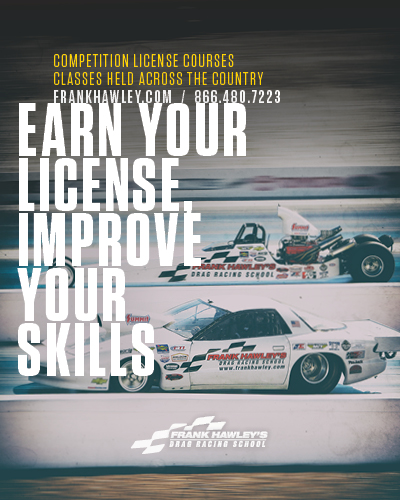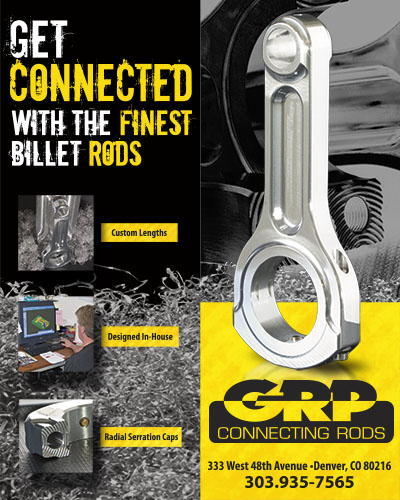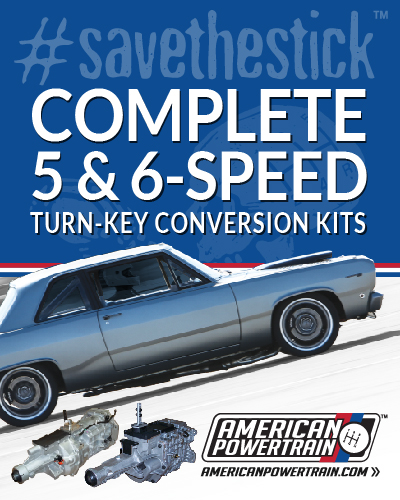INTERVIEW WITH DEAN SKUZA - LIFE AFTER THE BIG TIME
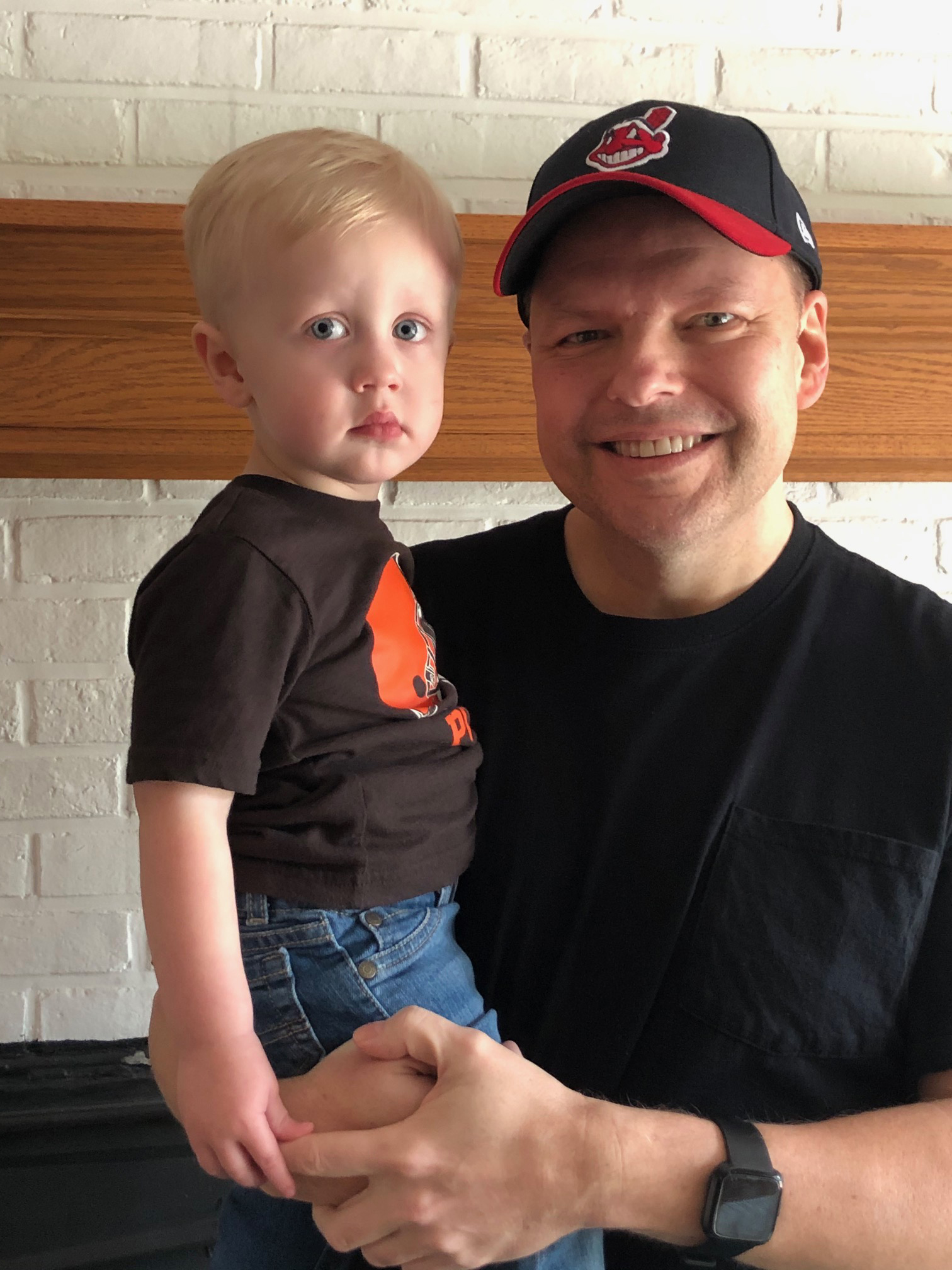 Dean Skuza is over drag racing. And, that's not a knock on the sport.
Dean Skuza is over drag racing. And, that's not a knock on the sport.
Skuza, 53, has settled into the simpler life of enjoying his family and a life where he's not chasing the NHRA drag racing tour from coast to coast. A day of babysitting his grandson Theodore, 2, is more gratifying anyway.
Skuza made a lot of ground with limited resources, winning two national events in his career. He finished in the top ten every season he raced from 1994 through 2003.
He never considered himself a "rockstar" although his tendency to not walk the corporate line made him a people's champion. Skuza's pit area was a favorite destination for the rock and roll icons who often visited the NHRA events.
CompetitionPlus.com Editor Bobby Bennett caught up with Skuza to discuss his time as a people's champion. His outlook on his career and most importantly would he consider a return.
COMPETITION PLUS - How does it make you feel to know after, what, two decades of being out of driving or so, and people still clamor for your return to the sport?
DEAN SKUZA - Yeah. I don't know. It's flattering as heck. Yeah. Especially in sports in general, but more so motorsports, it seems that once you're gone, they just forget you. I follow Supercross, and I think that's a good polarizing sport because it's so young. It's like a 30-year-old guy at a Supercross event is like a grandpa, and those guys retire, and it's two years out, and they don't even know your name anymore. I think drag racing isn't like that, though. Drag racing, there isn't a lot of guys. If you think about all the funny car drivers that have ever qualified at a national event in the last 30 years, it's a pretty short list compared to other motorsports. So, I think that's part of it.
I think the other part of it was, and it may be a reason why I'm not doing it anymore or at least a contributing factor, is that I tried not to be too corporate with it. I always remembered why I did it is because I was a fan at heart. I remember talking to Del Worsham, and I remember when he was just a kid, at Columbus with the Hendy & Worsham car, the Tinker Toy. And I was talking to him, and was asking questions because I had aspirations of doing it myself. I was like, 'Are you cutting that with just alcohol?"
He's like, "Yeah, yeah."
He was pouring drums into jugs. I remember how cool it was that he was the only person that talked to me. Everybody else gave me the cold shoulder, and I just thought, "I'll never be like that. I'll be like Del."
CP - That's a good person to be like. So, when are you coming back?
DS - I don't think so. A lot of people have asked me and texted me because of the pictures I just recently posted, and I said, "Yeah, but you're looking at someone that's 26 years younger then. That's a long time." I would love to, it's just the sport has changed so much, and if it was exactly like it was then, hell yeah, man. I'd probably be fighting to do it again.
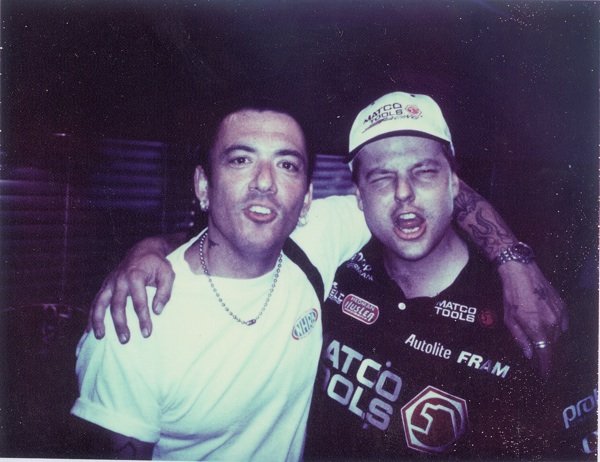 CP - So, what is the biggest thing you miss out of all of this?
CP - So, what is the biggest thing you miss out of all of this?
DS - If you would have asked me this question a month ago, I probably wouldn't have given you the right answer, because I really, honestly, I haven't thought about it at all in a long time. Until I was going through my, and I just recently got back on Facebook, I just recently got a smartphone, less than a year ago. I've had a flip phone, an old phone. I remember reading an article from Jack White, a guitarist from Detroit.
He wrote an article in the Rolling Stone, I believe it was, how he won't let his kids use computers or iPads. They don't have it. He says he doesn't see the, and I thought about that. Man, my kids, that's all they do. We go out to dinner, and they're just looking at their devices. It's like we're not even there. So, I figured, how am I going to tell them not to do it, if I'm doing it? So, I just never did. But you get to the point where you have to have, I started traveling again, and it's like, just scan your boarding pass. I'm like, 'What? I just have a flip phone." I felt like a total idiot.
I had to bite the bullet. Yeah, so anyway, I'm going through my Facebook feed, and I saw that Doug Herbert had posted a really cool picture of him and Steve Evans and a little story, and everything like that. And I just remembered, man, I got some really cool photos, because I'm close with Cam [Evans], his son. And I thought it would be really neat, I had one picture in particular that I wanted to post that I just, I'm so unorganized with this stuff.
I had to just go through pictures and pictures and pictures. I mean, it took me hours, but as I was going through these pictures, and it all started, I'm like, "Oh, my God, I forgot about him."
But some of the things that stuck out were, how many people have passed on. I'm like, "Oh, my God, that's right. He passed."
I was just overwhelmed with this. So, I called my wife, Lynette, I'm like, "Lynette, come over here." And then my youngest boy Danny, "Come here." And we all got the photo albums out and we're going through them, and how much fun we had. I forgot all about how much fun we had had.
So, it took, it's been so out of my mind for maybe the last 15 years, it took that picture that Doug Herbert posted to completely change my mind. So, to answer your question, it would be how much fun I had. I forgot how much fun it was. And the people, and the cool people, I forgot about how neat the people were.
 CP - Do you think that in your time of racing, you became as popular as a 1970s rock and roller that made it to the cover of the Rolling Stone? Was that how you would consider your career to have been back in those days?
CP - Do you think that in your time of racing, you became as popular as a 1970s rock and roller that made it to the cover of the Rolling Stone? Was that how you would consider your career to have been back in those days?
DS - I don't, no. Because I'm a huge music fan, so I never look at the parallel of the two. Although, the parallel I did draw is when, [drag racing publicist] Jay Wells would bring a lot of acts in, because of his crossover. He worked for Skoal.
So, every now and again he would always bring, I remember he brought at Red Rocks in Denver, The Scorpions were playing there. He brought them over, and he's not going to take The Scorpions to Chuck Etchell's pit, or even John Force, because they won't even know who they are. So, he would look for younger people that would appreciate The Scorpions, like our teams and some of Scotty Cannon's guys.
So, I got to meet a lot of these guys, and I talk with them, and the parallel that I drew was that even though we went to all these places, you really only saw a few things. They would see the airport, the venue, the hotel, the airport, the venue, the hotel, and it was pretty much the same thing with us. You'd see the venue, the hotel, and then the road, and the airport. Even though you went to all these really cool places, you never saw much.
CP - Is that a regret for you, that you didn't stop and smell the roses more?
DS - You know what, abso-f***ing-lutely because that's another point I wanted to make to you. When I was going through all these photos, I can't put it into words, but I can tell you that I remember, remember that movie Field of Dreams?
Remember the part with Kevin Costner finds Burt Lancaster, what was his name, Moonlight Graham?
They go back to his office, and Moonlight Graham says something like, "We just don't recognize the most significant moments of our lives while they're happening." He said something like, "Back then I thought, well, there will be other days." I didn't realize that that was the only day. That's what I was thinking. I saw pictures of my grandparents; they were at, they've been gone for a while now. So, this was obviously an early, probably from 1994 or something like that.
I remember back then, I don't even remember them being there because I was so busy with the car. If I could go back and do it again now, I'd be like, "Guys, get the car ready. I'm going to sit and chat over here with my grandparents." So, yeah, I think everybody that ages thinks like that. I'm no different. You see things a lot differently when you're older.
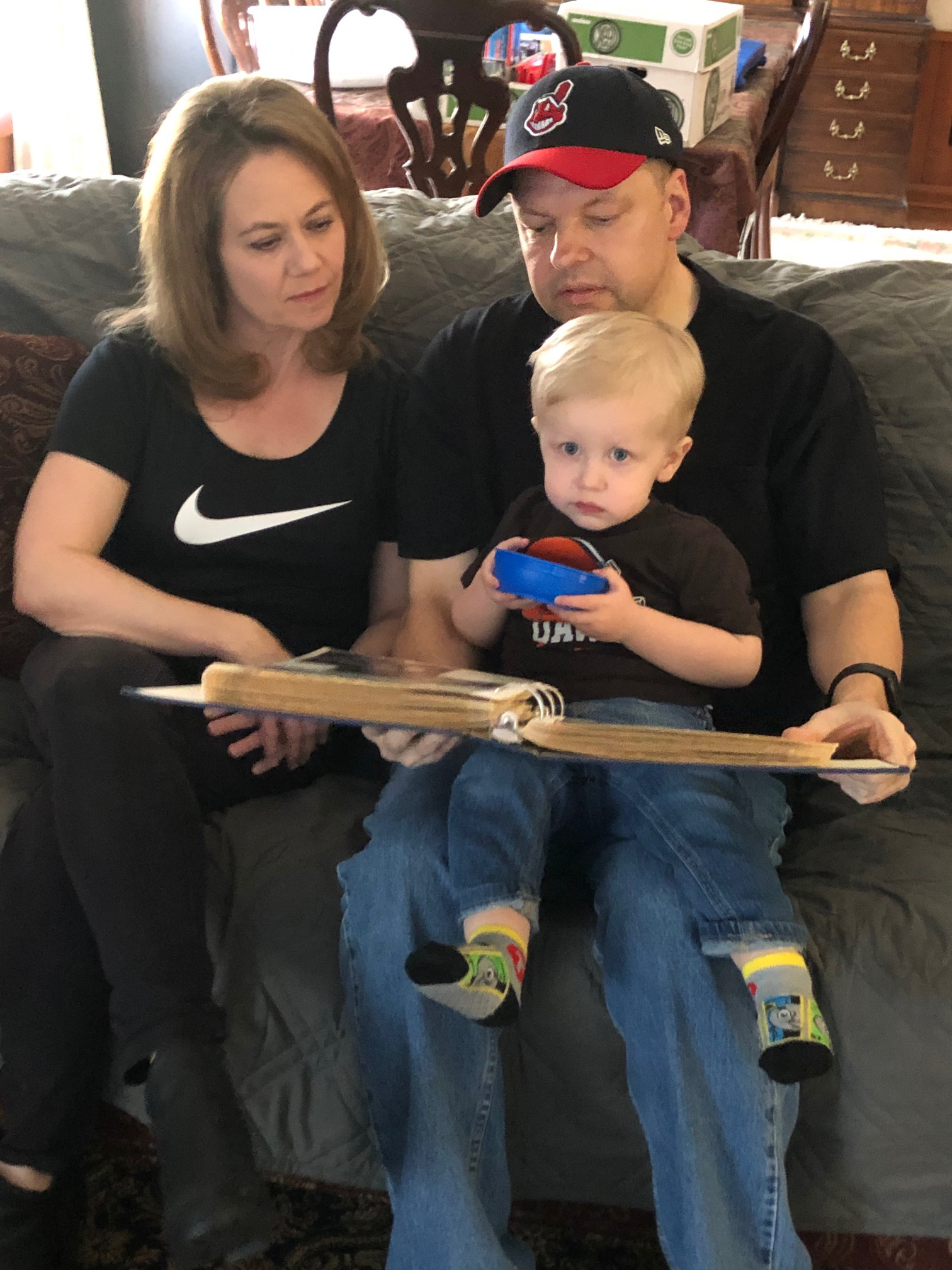 CP - So, what would it take to get you to come back out again?
CP - So, what would it take to get you to come back out again?
DS - It would take something that's impossible. Someone would have to say, here's $5 million and I'll buy all the equipment for you. I'd say, "Okay." But other than that, it would take a deal that just isn't feasible. I just, we sold everything. I remembered how, and I was a young pup, and I remember how hard I had to work just to be able to do it. And that was when it was doable, that's when two guys or three guys could put their name on the side of the car and go do it for a couple hundred grand. And I remember that. I remember how hard it took, working and then coming home from work and then going over to my dad's garage and working until midnight. Doing that for weeks and weeks. I just couldn't think of, "All right, Dean, let's go racing next year. I couldn't even imagine the cost, what that would entail when you start with nothing. Okay, we need two chassis, three bodies. Oh, my God. I mean, I don't think he could do it, man.
CP - I watched that movie, Rocky Balboa, where he goes back in the ring and he's like, what, 60 years old against the heavyweight champion. And he said, "I still have the fire in my belly and I got to get it out." How much of that fire is still in your belly?
DS - Not much, sadly. That's probably why the answer that, what it would take for me to do it. When I was young and I did it, when we had no sponsors on the car, I swear to God, I used to tell people I would rob 7-11s at night with a ski mask to do this. That's how much I want to do it. And I certainly do not feel like that now. And even if, let's just say for the sake of argument, say I did have that fire in my belly like Rocky did, I'm older now, you know what I mean? It's like, I just can't see myself barnstorming the country like I used to.
CP - Yeah. The face of drag racing may be different, so you never know what might happen.
DS - Just the attitude. It's like I have, not only do I have sons, but I have a grandson now. It's like, if it's a night qualifier, I'm going to be thinking about Jeezus Christmas, I don't want to burn this thing to the ground and hurt myself. I never thought that then.
CP - How would you feel if one of your kids wanted to go into drag racing?
DS - I wouldn't have any problem with it. I would say,'"Man, if you could figure the finances out, I'll help you in any way I can. And I'll even help you go after the finances, at least I could try to help you with that."
But no, I wouldn't steer them away. It's a lot different; I don't even know where to start. As I said, you would need $6 million to start from scratch. And we have a shop, and we have all the tools, and a lot of the things that you, like the specialty equipment. We still have a lot of that stuff, but you'd still need $6 million bucks to get off for the first year, anyway.
 BB - Have you been able to come back out to any races without getting bitten by the bug again?
BB - Have you been able to come back out to any races without getting bitten by the bug again?
DS - No. I haven't been as a spectator. I went to several races. Testing, this was way back when Corradi was working with Mike Ashley, and they were talking about me driving a second car. But in the meantime, he needed someone to test the car because he was busy at home. And Brian asked if I would do it, and I said, "Sure." And I got my license again. I think that was 2007 if I'm not mistaken.
And I was actually the next pair, right behind Eric Medlen, when he killed himself in that car. I saw that I was strapped in, we were going to be the next pair. And I saw the car, he was in the right lane and I was right behind him at Gainesville. And I thought something was in my eye, because he went out there and it went out about 100 feet, and it got blurry. I thought sweat went in my eye, or you get a piece of sleep in your eye or something. And I got, you got gloves on, I'm sitting there, after I saw what I saw, I was wiping my eye. Here, I come to find out days later what I had seen actually happened. That car just had such a nasty harmonic to it, that it just turned into, it looked like a blur.
CP - How much did that affect you?
DS - It didn't affect me much. It affected me a lot because Eric passed. He was such a nice person. In your life, you meet, maybe you can count on one hand, genuinely nice people, and he was one. I mean, he definitely was. So, yeah, that was tragic. But in terms of affecting me like I wouldn't want to do it again, I saw a lot of people die racing in my years, and you just block it out. You don't want to dwell on it. What changed me, I think, was the birth of my first son.
I remember that he was born in November of 1997, and I remember driving certain times, like Maple Grove at night with all the fog. And you'd be going out there and you're the next pair of two, actually it was when you were two pair away, you start thinking, I used to call it stinking thinking. Because you're all alone in the car, no one's looking at you. Even if you screamed, no one could hear you. Everyone's looking at what's going on on the track, and you're thinking, 'I should just get out of this thing, man. I can't afford, my wife's at home with my newborn."
It makes a difference.
It's a single man's game.
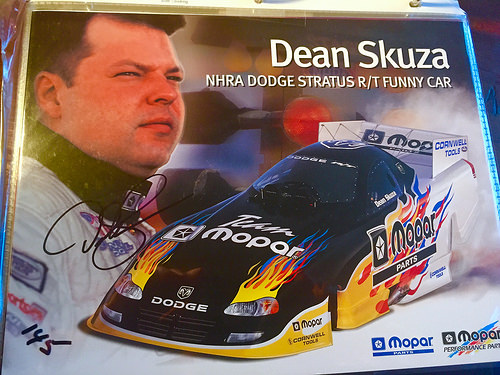 CP - Are you okay after all these years, how your career ended? I mean, do you look back at it in anger, or do you say it was just time?
CP - Are you okay after all these years, how your career ended? I mean, do you look back at it in anger, or do you say it was just time?
DS - I definitely do not look back at it in anger, but I wish we would have won more races, because I think about that a lot. I think about what prevented it, what did we do wrong? For the amount, we didn't have huge sponsorship, but we had adequate sponsorship. We could have ran that car and won every race. I mean, it wasn't like we were lacking and funding. We couldn't test quite as much as everybody else, but it definitely wasn't just money that prevented us. So, I think like that.
But if you look at any sport, like golf, or tennis, or Supercross, there's the top 10, okay, in anything. And there's a lot of guys that never get to be number one, a lot of them.
90% of them don't, right? So, if you watch golf, there's a lot of guys that have a whole career that never win a major, never win, even an event. I remember Tom Kite, this guy was always, always in the top five, but he hardly ever won. He won a couple, like me, I won a couple, but always a top finisher. And that's the way I think of myself. Yeah, that's not my personality. I don't play to be like Tom Kite. I play to be like Arnold Palmer. But if it was easy, everybody would do it.
It's not easy.
CP - So, one last question, for your fans, and you still have a ton of fans out there. If you could assemble them all and say anything to them, what would you say?
DS - Oh, that's a tremendous question. What would I say? The standard answer would be, thank you, but I'm just like them. I've always said that, at least that's what I wanted to say. When someone would be, occasionally you'd get a kid or a person that you'd sign something for, and they would be like, "Oh, my God, thank you" overly exuberant. I've always felt like saying, "I'm just a guy, nothing special."
So, I think I would say, "Thanks." That's all I can really think of.
BB - I think that speaks volumes. Dean-
How about a midweek trip to drag racing-themed commercial land? We got some old ones, some rare ones and ones you haven't seen in decades. Take a look, let us know if we forgot some. #DragracingNews - https://t.co/CS7PDmQQat pic.twitter.com/cltjldCgD5
— Competition Plus (@competitionplus) April 22, 2020




























